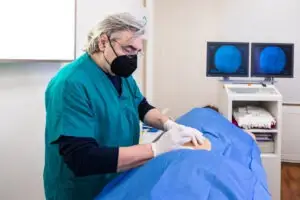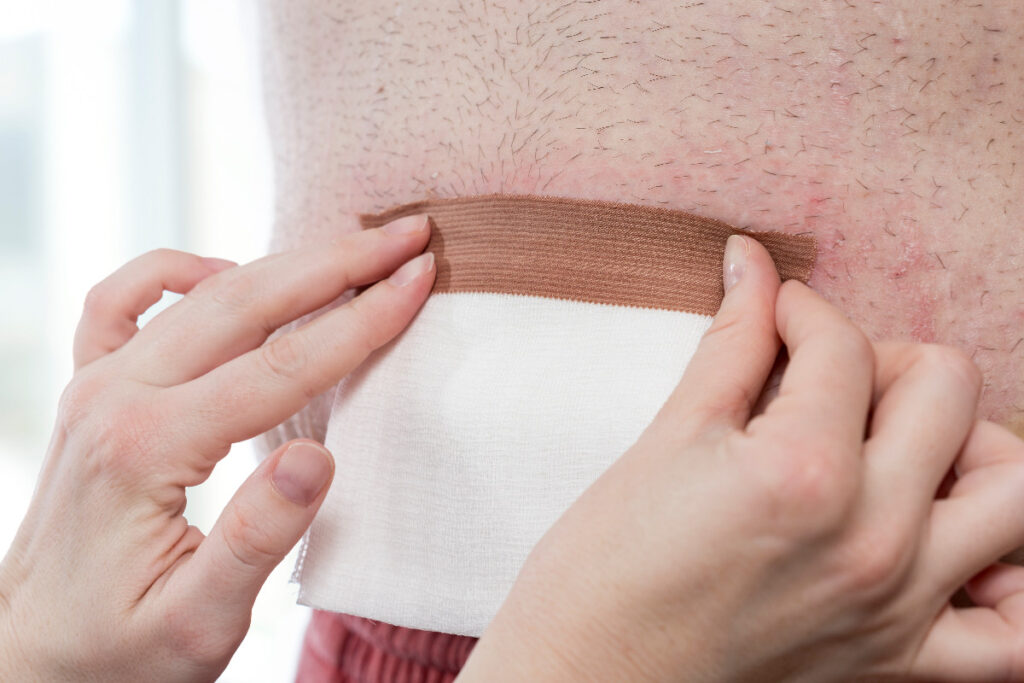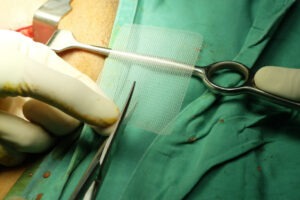
Complications from implant surgery might manifest themselves at any time, even months or years afterward. Patients could present with severe symptoms that are simple to recognize, or they might exhibit more subtle symptoms that are more challenging to detect. Having more than one symptom at once is possible in several situations.

What Signs and Symptoms Indicate Hernia Mesh Failure?
While there are several potential causes of hernia mesh failure, the most prevalent are manufacturing or design flaws in the mesh itself. As a result, the mesh might deteriorate, move, or erode into nearby organs. This will not only be painful, but it might also make things worse, necessitate corrective surgery, and lengthen the time it takes to heal. Some of the most common signs of a failed hernia mesh include:
- Constipation and/or bloating.
- Warmth, heat, pain, and/or tenderness in the area surrounding the incision.
- Flu-like symptoms, such as a high temperature.
- Feeling sick to one’s stomach and/or vomiting.
- Problems with or unusual inflammation in wound healing.
- The wound is so painful that you can’t go about your normal routine.
- A visible bump at or around the site of the hernia.
- Mesh migration, adhesion, intestinal blockage, infection, resistance, mesh shrinkage, and hernia recurrence are all possible causes of these symptoms.
To apply for free, call (877) 735-0016
Factors that Increase the Risk of Hernia Mesh Failure
After having surgery to repair their hernias with mesh, many patients do not experience any significant adverse effects. Recent research has shown that the reported incidence of illnesses associated with mesh has been between 1% and 8%.
However, mesh failure is not usually immediately apparent. In fact, it can develop months or even years after the initial operation. Keeping a look out for the previously mentioned symptoms may allow you to intervene early if necessary since other studies have revealed that the risk of problems from hernia mesh surgery is likely to be higher than when sutures are used.
Hernia Mesh Manufacturers Liability
Anyone involved in the research, development, production, or distribution of a medical product has a moral and legal responsibility to assure the safety and effectiveness of their goods. Although the FDA has yet to revoke clearance of a hernia mesh device, many major manufacturers have recalled and removed various items from the market due to safety concerns.
Many people who have tried to repair a hernia using surgical mesh have had it fail, leading them to conclude that the danger of complications is too great. However, in the United States, this kind of hernia treatment is still the norm. Companies like C.R. Bard, Inc. and Ethicon, along with dozens more, are still selling mesh devices today.
What to Do When Your Mesh Fails
You should see a doctor immediately if you have serious side effects after having hernia mesh surgery. They will be able to examine you and give you an idea of what may be wrong. It may be time to file a lawsuit if it turns out that the hernia was caused by a defective mesh repair. There are, however, three steps you must take before actually submitting a case.
See If You Qualify
There are stringent conditions for those who may pursue a hernia mesh claim, and yours is unlikely to make it to court if you don’t fulfill them. At this time, only Ethicon’s Physiomesh and Atrium’s C-QUR are subject to legal action. There are other varieties of mesh available, but these two are unique.
People have reported allergic reactions, persistent discomfort, and infections after using these polypropylene-coated alternatives, which were designed to be safer. To learn more about the mesh product used in your hernia repair, talk to your doctor or the hospital where you had the procedure done.
Evaluate the Level of Hernia Mesh-Related Injury.
Start gathering evidence for your case if you’re qualified and have Physiomesh or C-QUR. Determine the extent of the harm caused by the mesh, both monetarily and medically, before consulting a lawyer.
- How much actual discomfort did the hernia mesh cause?
- Any necessity for surgical correction? How much has that set you back?
- Do you find yourself in need of time off from work? How much is your lost income?
- Do you anticipate needing more time off from work? Your lawyer will use this data to determine the appropriate amount of compensation to seek on your behalf.
Consult a Qualified Lawyer
A lawyer can help you safeguard your rights and obtain compensation if you had issues due to hernia mesh failure. Hiring an attorney with a track record of success in high-profile personal injury cases might improve your case’s likelihood of being won in court. You may be able to get compensation for a variety of things if you win in court or settle out of court such as:
- The cost of additional medical expenses, such as revision surgery,
- Consequences of the mesh failure, including future medical expenses
- Income loss due to absence from work
- Expenses incurred as a result of your issues
- Injuries, Pain, and Suffering
- Mental suffering
- Legal fees
Complete a Free Application form now
Get Legal Funding for Hernia Mesh Lawsuit Today
Do you need non-recourse lawsuit funding for your hernia mesh lawsuit? Contact us today at (866)-407-6404 to schedule a simple case assessment. Our specialists will be happy to speak with you and help with your settlement loan application.
Call or text (877) 735-0016 or fill out our form to apply today for free.



